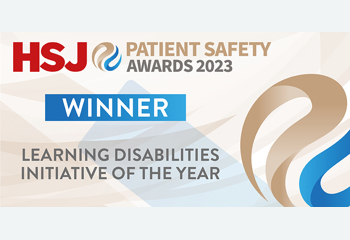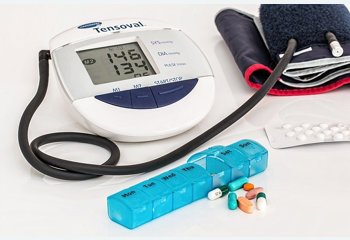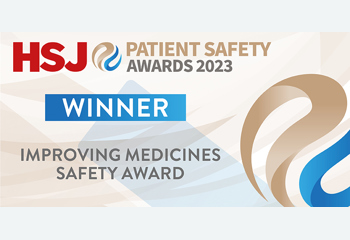Case Studies
-

Community Pharmacy Independent Prescribing Pathfinder Programme
30th Jun 2025
In 2023, Pharmacy First was launched in Community Pharmacy as part of a wider strategy in England to increase primary care access for patients. A shift to more clinical services is often hampered by the limited mechanisms for how patients can access medicines. Enabling independent prescribing will allow further clinical services from community pharmacy. The changes in pharmacist education and training will mean that all new pharmacists leaving university will have independent prescribing capability from 2025. NHS England has implemented a pathfinder programme to develop a commissioning framework for Independent Prescribing in future clinical services from community pharmacy. NHS England commissioned NHS Midlands and Lancashire (NHSML) to support the programme operationally from September 1, 2023, to November 31, 2025, to develop a national dashboard and a standalone cardiovascular disease lipids management dashboard for data analysis to inform a national commissioning model.
-

Supporting the Delivery and Evaluation of NHS Pharmacy Contraception Pilots
30th Jun 2025
As part of the Community Pharmacy Contractual Framework (CPCF) 2019-2024 a range of prevention services were tested within community pharmacy. The routine monitoring of patients taking oral contraception was flagged as a prevention service and a pilot to test the model was developed. The aim of the pilot was to determine if additional capacity could be created to provide improved access to contraception services for patients. The pilot was composed of two tiers: Tier 1: the ongoing monitoring and management of repeat oral contraception prescriptions Tier 2: the initiation of oral contraception via patient group directions.
-

Community Pharmacy Independent Prescribing Pathfinder Programme (CPIPPP) – Formative Evaluation
30th Jun 2025
Pharmacists have been practicing as independent prescribers since 2006, mainly working in hospital, general practice or other primary care settings. This programme explores how pharmacists can practice as an NHS independent prescriber within the community pharmacy sector. This is important because all pharmacists from 2025 onwards will graduate as qualified independent prescribers therefore improving prescribing capacity within the workforce.
-

NHS England Advanced Community Pharmacy Smoking Cessation Service - Royal Wolverhampton NHS Trust (October 2022 – January 2023)
28th Aug 2024
NHS England (NHSE) wanted to implement an adapted Ottawa Model of Smoking Cessation in secondary care trusts in England enabling patients to receive inpatient smoking cessation treatment and support as part of routine care. NHSE commissioned NHS Midlands & Lancashire to support implementation by working with various stakeholders within secondary care, primary care & local authority (this case study highlights implementation in Wolverhampton).
-

Stopping over medication of people with a learning disability, autism or both (STOMP)
8th Aug 2024
In a collaboration between NHS England’s Specialist Pharmacy Service and NHS Midlands and Lancashire CSU set out to address the over medication of people with a learning disability, autism or both.
-

Increasing patient referrals into the National Diabetes Prevention Programme
7th Aug 2024
Between June 2021 and March 2023, NHS Midlands and Lancashire CSU (MLCSU) were commissioned by the Black Country and West Birmingham CCG (subsequently the Black Country ICS) to support GP practices increase referrals into the National Diabetes Prevention Programme (NDPP).
-

Preventing cardiovascular diseases through lipid therapy modification
7th Aug 2024
Lakeside Healthcare Group, a multi-site GP partnership in Cambridgeshire, Lincolnshire and Northamptonshire, secured funding to review more than 1,000 at-risk patients for primary and secondary prevention of cardiovascular disease (CVD). They asked NHS Midlands and Lancashire CSU (MLCSU) to identify high-risk patients, offer lifestyle advice, and undertake remote clinical reviews to optimise their lipid therapy using NICE-approved pathways.
-

Wirral Medicines Optimisation in Care Homes (MOCH) project
5th Aug 2024
Nationally care home residents take an average of 7 medicines each day. With each additional medicine comes an increased risk of prescribing, monitoring, dispensing and administration errors, adverse drug reactions, impaired medicines adherence and compromised quality of life for patients.
-

Cheshire and Merseyside Formulary Harmonisation
17th Jul 2024
With the advent of the NHS Cheshire and Merseyside Integrated Care Board (ICB), there was a need to harmonise the legacy Cheshire and legacy Merseyside formularies. ML Medicines Optimisation Team provides the secretariat for the newly established Cheshire and Merseyside Area Prescribing Group (CMAPG) and the five subgroups that feed into the APG. Previously, ML has provided the secretariat for the Pan Mersey Area Prescribing Committee and subgroups. ML develop a project group with NHS Cheshire and Merseyside ICB and aligned five pharmacists from the ML team to support the harmonisation project.
-

NHS ML Prescription Ordering Direct Service
17th Jul 2024
A Prescription Ordering Direct (POD) service was established for Staffordshire & Stoke-on-Trent Integrated Care Board. A responsive, patient-centred POD service can reduce prescription costs, reduce prescription waste and improve medicines safety. A POD service can save valuable NHS funds by reducing GP workloads, thus improving access to clinicians and allowing them to devote more time to complex patient needs.
-

Scaling non-medical prescribing services for enhanced patient care
25th Apr 2024
Our Medicines Management Optimisation team has improved patient care by improving processes and automating tasks to ensure timely access to medications and maintain safety through competency assessments among healthcare professionals.
-

Inhaler prescribing errors: Identifying risks and improving patient safety
28th Sept 2023
Inhaler prescribing errors are frequently overlooked, leading to duplicate inhaler ingredients from the same drug group being prescribed and an increased risk of adverse effects for the patient.
-

Improving the safety of patients prescribed clozapine
28th Sept 2023
NHS Midlands and Lancashire CSU’s Medicines Management and Optimisation Team collaborated with a local mental health trust to address the issue of inadequate documentation of clozapine, a high-risk medication, in primary care patient medication records.
-

Empowering people living with pain to explore alternatives
20th Dec 2022
Flippin’ Pain is a public health campaign that engages with individuals and communities affected by persistent pain and empowers them through a better understanding. This is essential to delivering change in the approach to pain management across whole systems.
-

Improving quality of care in a nursing home through medicines management
22nd Nov 2022
Having identified medicines-related issues at a nursing home, colleagues from Lancashire County Council requested support from MLCSU’s Medicine Optimisation Care Home (MOCH) team.
-

Improving high-dose opioid prescribing
7th Oct 2022
There is no evidence for efficacy of high dose opioids (>120mg/day morphine equivalent) in long-term pain. The Faculty of Pain Medicine has advised that increasing opioid load above this dose is unlikely to yield further benefits but exposes the patient to increased harm Opioids Aware | Faculty of Pain Medicine (fpm.ac.uk).
-

Black Country Integrated Medicines Optimisation Committee
7th Oct 2022
Integrated care systems (ICSs) are bringing major changes in how health and care services are planned, paid for and delivered. The Black Country ICS has been setting up an Integrated Medicines Optimisation Committee (IMOC) to foster partnerships and optimise the use of medicines across the system.
-

Success in setting up community pharmacy services
25th May 2022
The Birmingham and Black Country Clinical Commissioning Groups (CCGs) requested our help with managing locally commissioned community pharmacy services. Several schemes were prioritised: Pharmacy First, COVID-19 Urgent Eye Care service, Specialist Palliative Care Drugs service and the Intravenous Antibiotic Supply service.
-

Pharmacy support to Lancashire and South Cumbria COVID-19 vaccination programme
24th May 2022
The Lancashire and South Cumbria Integrated Care System (ICS) set up a System Vaccination Operation Centre (SVOC) and a Management and Coordination Organisation (MCO) to run the COVID-19 vaccination programme. The ICS required pharmacy oversight to the programme to ensure the safe and effective use of vaccines in line with regulations. Pharmacist leadership was required to support the SVOC and MCO functions.
-

Achieving the best from Primary Care Network Pharmacy Teams
24th May 2022
When a newly established Primary Care Network (PCN) covering thirteen GP Practices in the Northwest of England approached MLCSU for strategic and clinical support, MLCSU responded by developing a tailored package of year-long support that included clinical supervision, joined-up work planning and strategy development. MLCSU aimed to ensure the PCN achieved its Network Contract Direct Enhanced Services (DES) and Investment & Impact Fund (IIF) targets
-

Evaluating the national Medicines Optimisation in Care Homes programme
24th May 2022
The national Medicines Optimisation in Care Homes (MOCH) programme (2019-21) supported 336 pharmacists and pharmacy technicians to improve their expertise in undertaking medication and system reviews in care homes.
-

Boosting GP community pharmacy consultations
24th May 2022
The GP Community Pharmacy Consultation Service (CPCS) is a national pharmacy service to enable patients to get care for minor ailments from their community pharmacy instead of the GP practice. In 2021, MLCSU was commissioned by NHS England and NHS Improvement to support implementation of the NHS CPCS service across the East of England from February to July.
-

Improving use of medicines across Merseyside – Pan Mersey Area Prescribing Committee
22nd May 2022
The Pan Mersey APC is a professional group consisting of GPs, pharmacists and other key healthcare professionals. It seeks to identify and champion the best use of medicines taking into account cost effectiveness, quality, equity and above all, patient safety.
-

Improving the quality and cost of blood glucose monitoring across the Mersey
24th Nov 2021
In 2014-15 the eight Pan-Mersey CCGs spent £4.569million on blood glucose meter (BGM) strips, with mean strip cost being 25.75p. There are many different brands of BGM strips, and many are effective and acceptable to patients and cost less than 20p per strip. The most expensive strips can cost up to 32.6p per strip. Reducing the mean strip cost to 20p or less for Pan Mersey would provide a cost improvement of over £1m per annum. Pan-Mersey CCGs proposed the creation of a guideline that recommended high quality, lower cost BGM strips that could be adhered to by primary and secondary care prescribers in their area.
